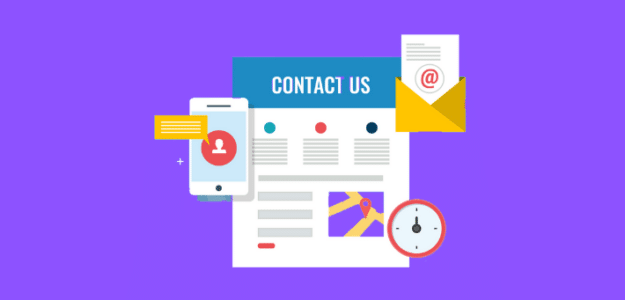How Artificial Intelligence is Shaping Digital Marketing Strategies
Discover how artificial intelligence is transforming digital marketing strategies, enhancing personalization, automation, and customer engagement for better business outcomes.

In today’s fast-paced digital landscape, Artificial Intelligence (AI) has become a game-changer for businesses looking to refine their digital marketing strategies. With its ability to analyze data, predict trends, and personalize experiences, AI is transforming the way brands connect with their audiences. This article explores how AI is reshaping digital marketing and the actionable insights businesses can leverage to stay ahead of the curve.
The Role of AI in Digital Marketing
AI enables marketers to process vast amounts of data and derive actionable insights that would otherwise take months of manual analysis. From content creation to customer segmentation, AI-powered tools are helping businesses optimize their marketing efforts efficiently and effectively. Below are some key areas where AI is making a significant impact:
1. Personalization at Scale
Consumers today expect personalized experiences across every touchpoint. AI-driven tools analyze user behavior, preferences, and past interactions to create highly tailored marketing messages. For example:
-
Dynamic Content: AI helps marketers deliver personalized website experiences by displaying content based on a visitor’s preferences.
-
Email Marketing: AI-driven platforms like Mailchimp use predictive analytics to recommend the best subject lines, sending times, and content for each recipient.
2. Predictive Analytics
AI-powered predictive analytics enable businesses to forecast future customer behavior. By analyzing historical data, these tools can:
-
Identify high-value customers.
-
Predict purchase patterns.
-
Recommend products or services most likely to convert.
This strategic use of data allows marketers to focus their efforts on high-impact areas, ensuring a better return on investment (ROI).
3. AI Chatbots for Enhanced Customer Service
AI chatbots have revolutionized customer service by offering instant responses to queries. Unlike traditional methods, chatbots powered by AI:
-
Operate 24/7.
-
Provide consistent and accurate responses.
-
Gather insights from interactions to improve future conversations.
For example, tools like ChatGPT help businesses automate FAQs, product inquiries, and even lead generation.
4. Content Creation and Optimization
AI tools like Jasper and Copy.ai are empowering marketers to create high-quality content faster. They can:
-
Generate blog posts, social media captions, and ad copy.
-
Optimize content for SEO by recommending keywords and readability improvements.
-
Analyze trends to suggest topics likely to resonate with audiences.
5. Programmatic Advertising
AI is redefining how digital ads are bought and placed. Programmatic advertising uses AI to automate the buying process, ensuring ads reach the right audience at the right time. Benefits include:
-
Increased efficiency.
-
Reduced ad spend wastage.
-
Higher conversion rates.
Platforms like Google Ads and Facebook Ads use AI to optimize campaigns based on performance metrics in real-time.
Advantages of Digital Marketing with AI
The advantages of digital marketing with AI integration are immense. By automating repetitive tasks and delivering data-driven insights, businesses can:
-
Enhance customer engagement through personalized experiences.
-
Improve ROI by targeting the right audience with precision.
-
Save time and resources by automating mundane tasks.
AI doesn’t just make digital marketing more efficient—it makes it smarter and more impactful.
Real-World Applications of AI in Digital Marketing Strategies
1. Netflix: Personalized Recommendations
Netflix leverages AI algorithms to analyze viewing habits and recommend shows and movies tailored to each user. This hyper-personalized approach has significantly boosted user engagement and retention.
2. Amazon: Smart Product Recommendations
Amazon’s AI-driven recommendation engine accounts for 35% of its total revenue. By analyzing browsing history, purchase behavior, and even wishlists, the platform provides users with highly relevant suggestions.
3. Coca-Cola: Predictive Analytics
Coca-Cola uses AI to analyze social media conversations and understand consumer sentiment. This data helps the brand develop products and campaigns that align with customer preferences.
The Future of AI in Digital Marketing
As AI technology continues to evolve, its role in shaping digital marketing strategies will only grow stronger. Here are some emerging trends:
-
Voice Search Optimization: AI tools like Alexa and Google Assistant are driving the demand for voice search-friendly content.
-
Augmented Reality (AR) Marketing: AI-powered AR is enhancing online shopping experiences by allowing customers to visualize products in real-world settings.
-
Hyper-Personalization: AI will continue to refine personalization by integrating more complex data points, such as real-time location and sentiment analysis.
Upskilling for the AI Revolution
To stay relevant in this evolving landscape, marketers need to upskill. Enrolling in an online digital marketing course is a great way to gain hands-on experience with AI-driven tools and strategies. These courses provide actionable insights into leveraging AI effectively in marketing campaigns.
Conclusion
Artificial Intelligence is undeniably shaping the future of digital marketing strategies. By offering tools to personalize experiences, predict trends, and optimize campaigns, AI empowers marketers to achieve unprecedented levels of efficiency and effectiveness. Businesses that embrace AI today will not only stay competitive but also set the standard for innovation in the digital marketing space.
What's Your Reaction?

















